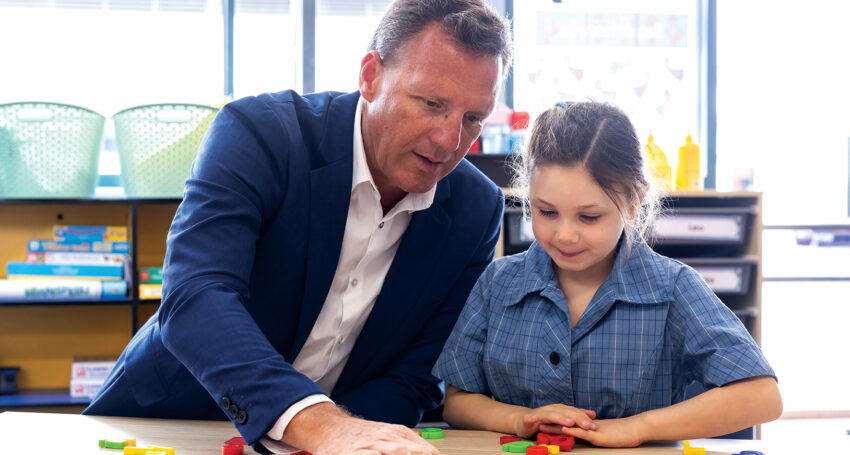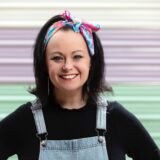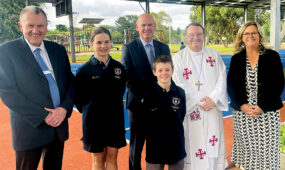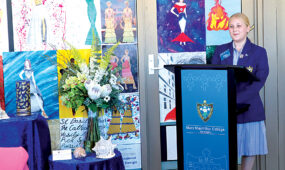Lighthouse for sound literacy
Schools
Matt Perry has a serious case of job satisfaction. The new principal at Warradale’s Christ the King School stepped into the role last year and has his sights fixed on leading the school to success.

The adoption of the ‘Wiley Blevins From Phonics to Reading’ program is a major part of that plan. According to the US-based author, educator and early literacy expert Blevins, phonics instruction helps children decode words that follow these predictable sound-spelling relationships and syllable spelling patterns.
“We were approached as being a possible ‘lighthouse’ or pilot school for the Wiley Blevins program and jumped at it because we were looking for a new pedagogy behind our English blocks,” Mr Perry said. “Particularly what they contained and the rigour and depth of those English blocks. We jumped at it with open arms.”
Advertisement
Christ the King School rolled the program out to Reception and Year 1 students last year, followed by Year 2 in 2024.
“We moved away from the ‘whole language’ approach where we just assume that children are reading and know how to write and spell.
“Instead, we’ve moved to a what we call an EDI or ‘explicit direct instructional’’ approach. It’s very repetitive but that’s based on making sure children understand what something like a sound or phonic is before they move on to the next step. The children gain new ideas, concepts and skills but the paedology behind it remains consistent, direct and very instructional.”
Mr Perry explained how this includes a multi-sensory phase.
“They write things in the air, they write on white boards, they ‘chop sounds up’ on their arms, all those sorts of things. That activates parts of the brain, so they understand what those concepts are.”
In 2023, the school hosted author Blevins during a trip to Australia to run recorded phonics workshops which were attended by multiple educators.
“As far as literacy goes, it’s not a plug and play program. It’s a pedagogy that gains traction when it has time to develop,” Mr Perry said.
“We’re in that early stage where we’ve seen some really good results and moving forward, it’s exciting for us.”
Mr Perry said teachers were expected to deliver an English block lasting from 9.10am to 10.50am.
“It’s a part of the day when the children are cognitively fresher – they teach reading, writing, spelling, and comprehension.
“We moved away from those days where it was a race to read 30 books and kids were reading like robots, just for the sake of it. If they can read, understand and comprehend they’ve got a much better chance of understanding all the other parts of the curriculum, whether it’s a word problem, or a geography assignment.”
There is still heavy emphasis on handwriting and reading from texts, particularly for early learning where the majority of the curriculum is delivered via pencil, handwriting and books.
“We are not IT heavy, particularly in the early years, and that is by design and purposeful,” he explained. “That’s because we know that lots of kids come to school with a heavy diet of screen time.”
In a sense, they need to undo the way they learned to read.
Advertisement
“When you look at an iPad, website or a computer screen, the important information is usually in the middle of the screen. Whereas when you read a book, it’s left to right and top to bottom which involves different muscle/brain connection in terms of where you pick up information on the page, as opposed to the screen,” Mr Perry said.
The school, which celebrates its 65th anniversary this year, prides itself on its multicultural community, and diversity of backgrounds and religions.
“We celebrate those differences, and we look for the similarities between us,” Mr Perry said, adding there was a 25 per cent jump in enrolments from 2023 to 2024.
“That’s a reported difference compared to pretty much any other school in our region. “There’s nothing wrong with big schools but from my perspective as a principal at a small school, it gives me a chance to get to the classrooms each day; to know kids by names and get to know their families.”







